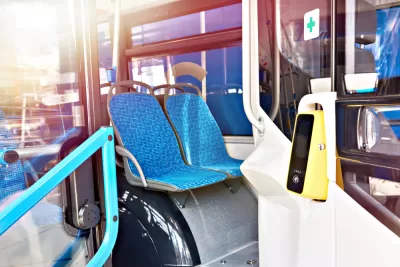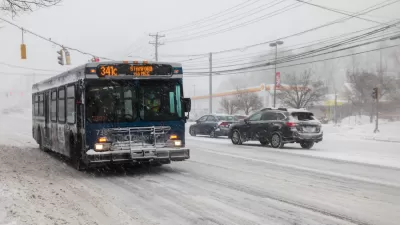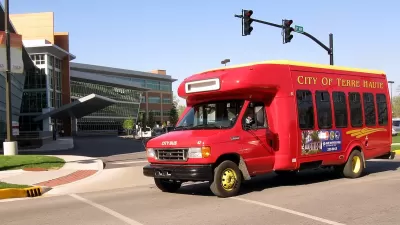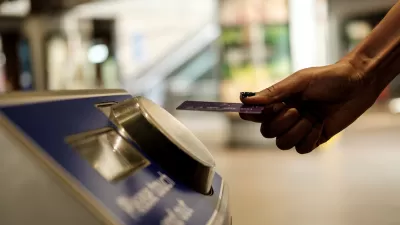Many of the riders who rely on public transit the most are also least likely to be able to use cashless fare systems.

A study from the University of Oregon reveals that eliminating cash payments on public transit systems can harm low-income users, who are often most dependent on transit for daily needs.
“They’re also less likely to have a credit card, smartphone, or even the cash reserves to pay for a monthly transit pass upfront,” and have a harder time reloading fare cards without cash options, the study showed. “If people have to visit a gas station or convenience store to reload their bus card with cash, how will they get there?”
“Maintaining cash fare boxes is very expensive; each one can cost thousands of dollars. But accepting cash also increases ridership, giving people more flexibility to hop on a bus without having to jump through hoops to set up an account or link a credit card.” In other words, transit agencies could still lose revenue from lost ridership despite the savings of eliminating cash fareboxes.
The report’s author, Professor Anne Brown, points out the simplest solution: no fares for anyone. “Fares make up only a part of the budget for most transit agencies, and that financial gap could be closed in other ways.” Proponents of fare-free transit argue that—when paired with effective service—it eliminates a major expense for low-income commuters and encourages more ridership.
FULL STORY: Study: Cash payments remain a key part of equitable transit

Trump Administration Could Effectively End Housing Voucher Program
Federal officials are eyeing major cuts to the Section 8 program that helps millions of low-income households pay rent.

Planetizen Federal Action Tracker
A weekly monitor of how Trump’s orders and actions are impacting planners and planning in America.

Canada vs. Kamala: Whose Liberal Housing Platform Comes Out on Top?
As Canada votes for a new Prime Minister, what can America learn from the leading liberal candidate of its neighbor to the north?

Washington State’s Parking Reform Law Could Unlock ‘Countless’ Acres for New Housing
A law that limits how much parking cities can require for residential amd commercial developments could lead to a construction boom.

Wildlife Rebounds After the Eaton Fire
Following the devastation of the Eaton Fire, the return of wildlife and the regrowth of native plants are offering powerful signs of resilience and renewal.

LA to Replace Inglewood Light Rail Project With Bus Shuttles
LA Metro says the change is in response to community engagement and that the new design will be ready before the 2028 Olympic Games.
Urban Design for Planners 1: Software Tools
This six-course series explores essential urban design concepts using open source software and equips planners with the tools they need to participate fully in the urban design process.
Planning for Universal Design
Learn the tools for implementing Universal Design in planning regulations.
Central Transportation Planning Staff/Boston Region MPO
Heyer Gruel & Associates PA
Institute for Housing and Urban Development Studies (IHS)
City of Grandview
Harvard GSD Executive Education
Regional Transportation Commission of Southern Nevada
Toledo-Lucas County Plan Commissions





























